 Part of the difficulty of arguing with Economic Liberals (libertarians, Austrian school, Acton institute, etc.) is that we have entirely different conceptions of the constitution of society, and we have fundamentally different notions of society's end. (the other part of course is that we define all of our terms differently). Distributism, in advocating the intervention of the state and subsidiaries at the local level to intervene in the economy when necessary, do so because the end of the state is to create an environment conducive to the salvation of the soul and the moral perfection of man within the context of the common good.
Part of the difficulty of arguing with Economic Liberals (libertarians, Austrian school, Acton institute, etc.) is that we have entirely different conceptions of the constitution of society, and we have fundamentally different notions of society's end. (the other part of course is that we define all of our terms differently). Distributism, in advocating the intervention of the state and subsidiaries at the local level to intervene in the economy when necessary, do so because the end of the state is to create an environment conducive to the salvation of the soul and the moral perfection of man within the context of the common good.Economic liberals on the other hand, conceive of the state quite naturally in the context of liberal democracy as historically condemned by the Church. That the government should be secular and not openly religious one way or the other, permitting men to freely choose their religion and activity so long as it doesn't appear to harm others, with no determined end on account of the fact that this would represent an undue government intrusion into man's right to act freely. As such society could have as many ends as there are people in that society, which does not fit the traditional understanding of society, but rather of a subtle anarchy. One of the principle fallacies in the conception of economic liberals is the notion of freedom. In their framework, freedom, particularly in economy, is the freedom to use one's property and wealth in any way he sees fit.
Catholic Teaching on Freedom
This utterly unCatholic view of freedom is condemned explicitly by Pope Leo XIII (all emphasis in red are my own both here and throughout):
The eternal law of God is the sole standard and rule of human liberty, not only in each individual man, but also in the community and civil society which men constitute when united. Therefore, the true liberty of human society does not consist in every man doing what he pleases, for this would simply end in turmoil and confusion, and bring on the overthrow of the State; but rather in this, that through the injunctions of the civil law all may more easily conform to the prescriptions of the eternal law….What has been said of the liberty of individuals is no less applicable to them when considered as bound together in civil society. For, what reason and the natural law do for individuals, human law, promulgated for their good, does for the citizens of States. -Libertas Praestantissimum, no. 10When applied to economics, such would be anathema to the ears of today's economic liberals, but it nevertheless remains apart of the corpus of Catholic teaching. Annunciating this same principle, Leo says in the same encyclical:
Such, then, being the condition of human liberty, it necessarily stands in need of light and strength to direct its actions to good and to restrain them from evil. Without this, the freedom of our will would be our ruin. First of all, there must be law; that is, a fixed rule of teaching what is to be done and what is to be left undone. This rule cannot affect the lower animals in any true sense, since they act of necessity, following their natural instinct, and cannot of themselves act in any other way. On the other hand, as was said above, he who is free can either act or not act, can do this or do that, as he pleases, because his judgment precedes his choice. And his judgment not only decides what is right or wrong of its own nature, but also what is practically good and therefore to be chosen, and what is practically evil and therefore to be avoided. In other words, the reason prescribes to the will what it should seek after or shun, in order to the eventual attainment of man's last end, for the sake of which all his actions ought to be performed. This ordination of reason is called law.(Ibid, no. 7)
In man's free will, therefore, or in the moral necessity of our voluntary acts being in accordance with reason, lies the very root of the necessity of law. Nothing more foolish can be uttered or conceived than the notion that, because man is free by nature, he is therefore exempt from law. Were this the case, it would follow that to become free we must be deprived of reason; whereas the truth is that we are bound to submit to law precisely because we are free by our very nature. For, law is the guide of man's actions; it turns him toward good by its rewards, and deters him from evil by its punishments.
Fine so far. One would find that our economic liberal friends would agree with this, saying that of course man has need of law. Simply not in economics of course. Pope Pius XI however, applying these principles of human liberty and human freedom to the market, had this to say:
Just as the unity of human society cannot be founded on an opposition of classes, so also the right ordering of economic life cannot be left to a free competition of forces. For from this source, as from a poisoned spring, have originated and spread all the errors of individualist economic teaching. Destroying through forgetfulness or ignorance the social and moral character of economic life, it held that economic life must be considered and treated as altogether free from and independent of public authority, because in the market, i.e., in the free struggle of competitors, it would have a principle of self direction which governs it much more perfectly than would the intervention of any created intellect. But free competition, while justified and certainly useful provided it is kept within certain limits, clearly cannot direct economic life -- a truth which the outcome of the application in practice of the tenets of this evil individualistic spirit has more than sufficiently demonstrated. Therefore, it is most necessary that economic life be again subjected to and governed by a true and effective directing principle. This function is one that the economic dictatorship which has recently displaced free competition can still less perform, since it is a headstrong power and a violent energy that, to benefit people, needs to be strongly curbed and wisely ruled. (all emphasis mine)Pius XI is telling us that the principles of economic liberalism, what today we call libertarianism or Austrian economics, does not serve as an effective directing principle for society, and it is precisely because it is based on Enlightenment heresies on human freedom.
Now the Church does not propose the destruction of the Capitalistic disorder in a vacuum (as say a Socialist who wants all property entrusted to an atheistic state to hold in trust for the community). She proposes instead a unity of Church state and society, with the same ends and goals. This is because what is in view is an ordered state, ordered to the same end for all of its members. Bl. Pope Pius IX, stated it as an error to divorce the Church from the State's laws and ends (with my emphasis as before):
For you well know, venerable brethren, that at this time men are found not a few who, applying to civil society the impious and absurd principle of "naturalism," as they call it, dare to teach that "the best constitution of public society and (also) civil progress altogether require that human society be conducted and governed without regard being had to religion any more than if it did not exist; or, at least, without any distinction being made between the true religion and false ones." And, against the doctrine of Scripture, of the Church, and of the Holy Fathers, they do not hesitate to assert that "that is the best condition of civil society, in which no duty is recognized, as attached to the civil power, of restraining by enacted penalties, offenders against the Catholic religion, except so far as public peace may require." From which totally false idea of social government they do not fear to foster that erroneous opinion, most fatal in its effects on the Catholic Church and the salvation of souls, called by Our Predecessor, Gregory XVI, an "insanity," viz., that "liberty of conscience and worship is each man's personal right, which ought to be legally proclaimed and asserted in every rightly constituted society; and that a right resides in the citizens to an absolute liberty, which should be restrained by no authority whether ecclesiastical or civil, whereby they may be able openly and publicly to manifest and declare any of their ideas whatever, either by word of mouth, by the press, or in any other way." But, while they rashly affirm this, they do not think and consider that they are preaching "liberty of perdition;" and that "if human arguments are always allowed free room for discussion, there will never be wanting men who will dare to resist truth, and to trust in the flowing speech of human wisdom; whereas we know, from the very teaching of our Lord Jesus Christ, how carefully Christian faith and wisdom should avoid this most injurious babbling."Normally I prefer to refrain from referencing long strings of quotations to make a point, but when it concerns Catholic social teaching and Catholic political teaching it is sorely needed due to the great ignorance out there, unwilled of course for most men have never heard it. The assault of modern ideas, modernism if you will, is always directed against the political order of Christendom, that is Catholic society that began and evolved from King Clovis until the Reformation in 1531. Yet the Church continues to put forth that ideal and the principles that underlie it as the model of the Catholic state, even as the benighted social scientists, economists, natural scientists and politicians of our day continue to mock her. When looking at our current debate, we see part of the source of disagreement between Distributism and the framework of Economic liberalism. The latter, is conceived in a state of being where society is not ordered on a Catholic framework, where error is freely allowed rather than merely tolerated or curbed by government power, and where government does not work with the Church toward any given end of society, it merely lets its members go this way and that.-Pius IX, Quata Cura no. 3
The latter on the other hand, is a system of economics conceived solely within a Catholic Framework, or at least in the framework that embodies those principles. Namely, that the government works with the Church to ensure the same end in society, so that as Pope Pius XI says it is as an ordered whole, an organism.
Order of Society
At this point no few voices are heard to cry Theocracy, and talk about the evils of kings and that all evils come from the unity of Church and State. The problem is that those raising such opposition generally do not understand what they are attacking, and as such our terms must be clearly defined. First of all, England provided a model of government that was truly Theocractic, namely that the high priest of the Church of England was the King, who was also the head of the state. This was unique in Christendom, because historically the Church and State were united, but not the same thing. In fact there was a clear sphere in which the Church operated and which the state operated. In rare cases of course, a Bishop might rule a given area, the Pope ruled the Papal States. Yet in countries like France, or in the Holy Roman Empire, Hungary, Denmark, pre-reformation England, or Spain, there was no Theocracy, and this term is falsely bandied about to describe all of Europe prior to the ignominious Enlightenment. Theocracy, as I noted, best describes post-Reformation England where the State ruled the Church and vice versa, or Islamic monarchies where the Sultan, or the supreme ruler in Islam the Calipha, was at once the religious authority and the governor of the state. In the case of the latter, he is the person in Islam who stands in the office of the prophet Muhammed.
It was in Christendom where the harmonious union of Church and State was achieved without one ruling the other. This is the type of order the Church has always supported, because it is oriented toward the same end, establishing the Social Kingship of Jesus Christ in society. Pope Pius XI declared concerning the Kingship of Christ in society:
Christ as our Redeemer purchased the Church at the price of his own blood; as priest he offered himself, and continues to offer himself as a victim for our sins. Is it not evident, then, that his kingly dignity partakes in a manner of both these offices?Thus according to the good Pope, the state is required to acknowledge the rule of Jesus Christ over all nations of the Earth. What does that include? Necessarily, you can not accomplish this unless one is promoting the moral teaching of Christ's kingdom, which is the Church. The state need not be composed of priests to accomplish this goal. But it can not be a state so utterly divorced from the true religion that it can have no official creed, or without discrimination allow men to follow whatever creed and moral practice. Society must be subordinated to a particular end, which is the salvation of the soul through entry into the Catholic Church, and a moral life conducive to that end. Thus the state can not be taken out of play when it comes to men's decisions, it must as much as possible, be conducive to freedom to choose the good, which is eternal truth.It would be a grave error, on the other hand, to say that Christ has no authority whatever in civil affairs, since, by virtue of the absolute empire over all creatures committed to him by the Father, all things are in his power. Nevertheless, during his life on earth he refrained from the exercise of such authority, and although he himself disdained to possess or to care for earthly goods, he did not, nor does he today, interfere with those who possess them. Non eripit mortalia qui regna dat caelestia.
Thus the empire of our Redeemer embraces all men. To use the words of Our immortal predecessor, Pope Leo XIII: "His empire includes not only Catholic nations, not only baptized persons who, though of right belonging to the Church, have been led astray by error, or have been cut off from her by schism, but also all those who are outside the Christian faith; so that truly the whole of mankind is subject to the power of Jesus Christ."[Annum Sacrum] Nor is there any difference in this matter between the individual and the family or the State; for all men, whether collectively or individually, are under the dominion of Christ. In him is the salvation of the individual, in him is the salvation of society. "Neither is there salvation in any other, for there is no other name under heaven given to men whereby we must be saved." He is the author of happiness and true prosperity for every man and for every nation. "For a nation is happy when its citizens are happy. What else is a nation but a number of men living in concord?" If, therefore, the rulers of nations wish to preserve their authority, to promote and increase the prosperity of their countries, they will not neglect the public duty of reverence and obedience to the rule of Christ.
-Quas Primas, no. 16-18
Distributive Justice
The name "Distributism" was derived by Hilaire Belloc from a very ancient principle of justice, which goes back to Aristotle called "Distributive Justice." St. Thomas in Pars Secunda Secundae of the Summa Theologiae describes Distributive Justice, as well as a related form of Justice called "Commutative":
As stated above (58, 7,8), particular justice is directed to the private individual, who is compared to the community as a part to the whole. Now a twofold order may be considered in relation to a part. On the first place there is the order of one part to another, to which corresponds the order of one private individual to another. This order is directed by commutative justice, which is concerned about the mutual dealings between two persons. On the second place there is the order of the whole towards the parts, to which corresponds the order of that which belongs to the community in relation to each single person. This order is directed by distributive justice, which distributes common goods proportionately. Hence there are two species of justice, distributive and commutative.Commutative justice focuses on the dealings between two persons independent of society. It is focused with equalizing them in order to judge justly. Distributive justice on the other hand focuses more upon the social order as a whole. Therefore when applied to a Catholic conception of economics, Distributive justice aims at ensuring an equal distribution of possession of the means of production. The actual distribution will be unequal of course, as it was in feudal and distributist medieval societies, but widespread distribution will be a fact in any event. Leo XIII is clearly speaking of this in Rerum Novarum, when he said:
This is first and foremost, namely that they protect equitably each and every class of citizens, maintaining inviolate that justice especially which is called distributive..... The law ought to favor this right and so far as it can, see that the largest possible number among the masses of the population prefer to own property. If this is done, excellent benefits will follow, foremost among which will surely be a more equitable division of goods.-Rerum Novarum, no. 49, 65-6, (Quoted in Distributism a Catholic system of Economics by Donald goodman)
In this context, the quotes from the pontiffs above acquire more force and make more sense, that it produced a more Catholic economic order, oriented not toward windfall, but to a different wind, that of the Holy Ghost (John III).



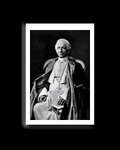
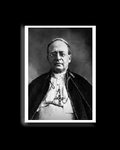

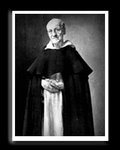
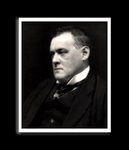
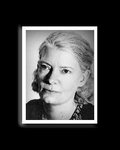
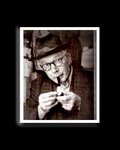
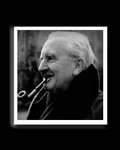





1 comment:
Athanasius, I've taken my time in responding to this post because I wanted to give the papal teachings due consideration. My problem is not deciding whether I am going to agree with the Popes, but on a more fundamental level, my problem is understanding them, in coming to any coherent interpretation at all that is free from blatant contradiction.
When you quote the Pope saying, "Therefore, the true liberty of human society does not consist in every man doing what he pleases", what does this mean? Particularly what does he mean by "true"?
I can only suppose the Pope is trying to express something about the significance or the value of freedom rather than its definition. Otherwise, how are we to understand the later comments,
"Such, then, being the condition of human liberty, it necessarily stands in need of light and strength to direct its actions to good and to restrain them from evil. Without this, the freedom of our will would be our ruin."
If liberty's definition was not man's capacity to chose that which he desires from among all that is possible, then how could it be that "our ruin" would come from "freedom" without the "light and strength" that "the condition of human liberty" needs?
My current understanding of these encyclicals is that the Pope is saying that freedom is never an end in itself, but exists so that man might choose the good. In other words he is commenting on the purpose and the value of freedom, not on its definition.
You say, "As such society could have as many ends as there are people in that society, which does not fit the traditional understanding of society, but rather of a subtle anarchy. One of the principle fallacies in the conception of economic liberals is the notion of freedom. In their framework, freedom, particularly in economy, is the freedom to use one's property and wealth in any way he sees fit." [Emphasis Added]
Yet you quote the Pope saying,
"On the other hand, as was said above, he who is free can either act or not act, can do this or do that, as he pleases, because his judgment precedes his choice."
...And this almost directly contradicts the first papal quote I cited in this comment unless you understand that quote not to be about the definition of freedom, but about the purpose of freedom.
This is just one piece of the puzzle. I'll try to comment more later.
Post a Comment